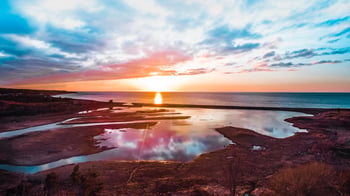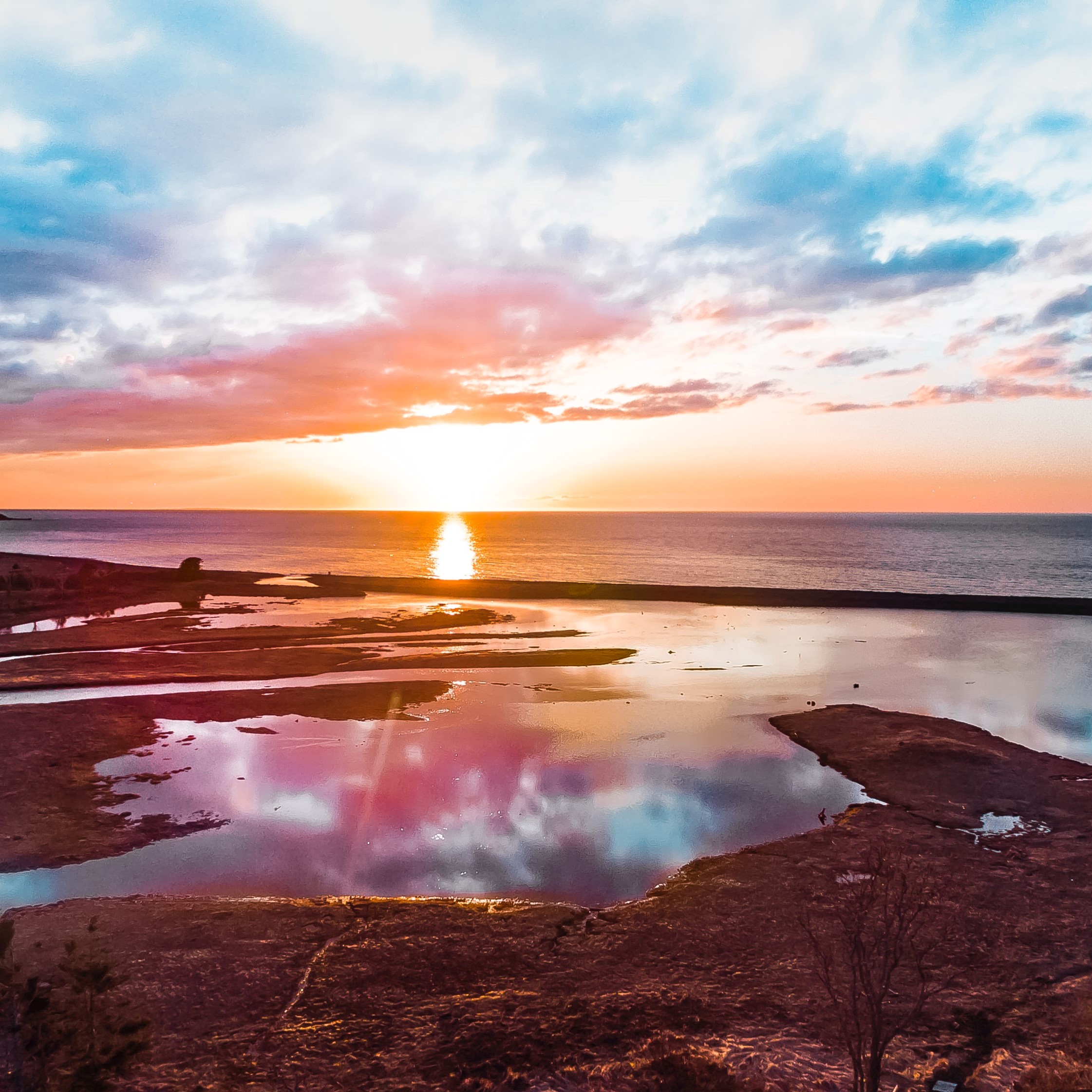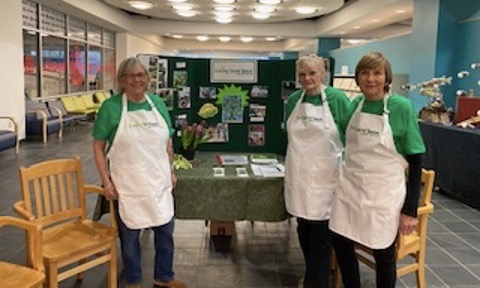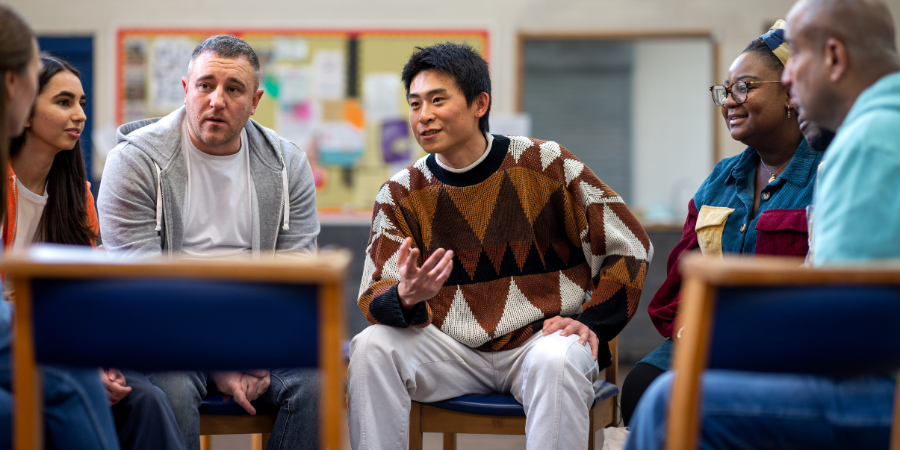This blog post is part of a series written by participants in the Tamarack Institute’s 2022 Community Climate Transitions Cohort, a 10-month learning journey in which multisector teams from 19 communities across Canada explored a collective impact approach to climate transition. See the full list of posts here.
 One Friday in November 2021, a small group of concerned citizens gathered outside of Antigonish town hall in rural Nova Scotia for what had become a regular Fridays for Future Rally in solidarity with students’ strikes for the planet. At our organizing meeting that weekend, the idea was raised to apply for the Tamarack Institute’s pilot Community Climate Transitions Cohort. Two months later, six volunteers embarked on a co-learning journey around climate action, grounded in equity, with 18 other communities across Canada.
One Friday in November 2021, a small group of concerned citizens gathered outside of Antigonish town hall in rural Nova Scotia for what had become a regular Fridays for Future Rally in solidarity with students’ strikes for the planet. At our organizing meeting that weekend, the idea was raised to apply for the Tamarack Institute’s pilot Community Climate Transitions Cohort. Two months later, six volunteers embarked on a co-learning journey around climate action, grounded in equity, with 18 other communities across Canada.
Coming into Tamarack’s Cohort, the Antigonish team was equipped with years of experience in education and activism, and a vast array of knowledge around climate justice issues. When we first started gathering and brainstorming how we would move the work of climate action forward in and around Antigonish, we were filled with ideas, including what we thought would be a roadmap for community engagement. While we all wanted to jump straight in, we quickly discovered the importance of getting to know each other. We decided to meet on a weekly basis and, following the advice of one of our members, started each meeting with an opening reflection based on a prompt he would send.
These included:
- What is something you fear? What gives you hope?
- Envision the world in 20 years when our children are our age.
- What is one thing you commit to for Mother Earth by the Summer Solstice?
- Appreciate yourself for one specific thing.
In our coaching session with Sylvia Cheuy, she reinforced the idea that half of the work is focusing on the issue and the other half is building the relationships, the trust, and the collaborative network. For this year’s journey, we’ve begun building that foundation, but we have also faced the challenges that come with being a group of volunteers trying to fit the work in amidst a variety of other commitments, such as care work, full-time jobs, and other volunteer commitments. We have struggled with the need for a paid position to provide backbone support and have discovered the importance of cultivating a larger local group to share the workload. While we may not have ended this year’s experience where we thought we would be, we are hoping that the relationships we have built will support us to keep expanding our network, connecting to share hope, and engaging with our community to move climate action forward in an equitable and compassionate way, where no one is left behind.





